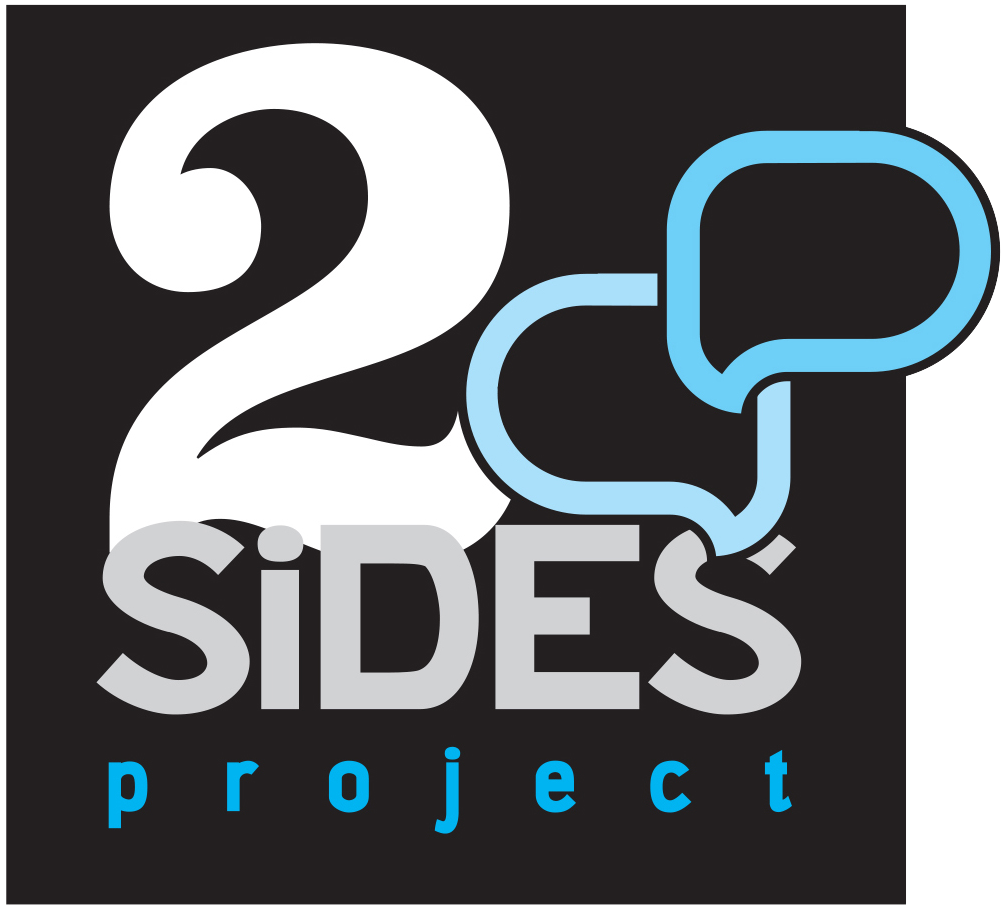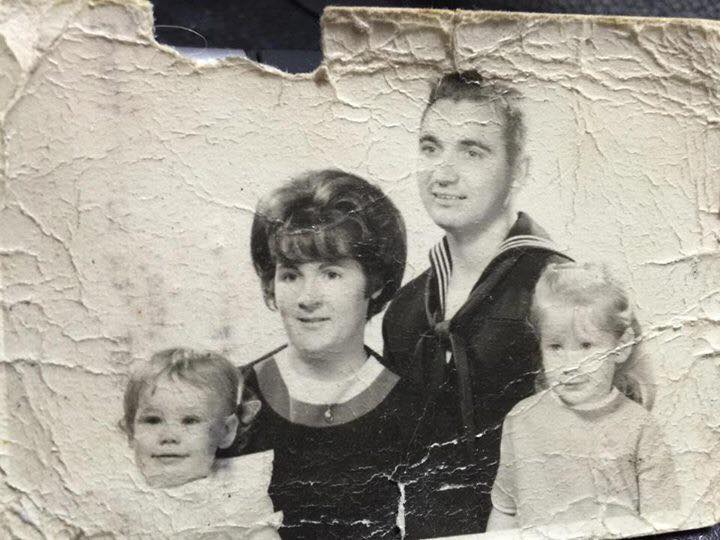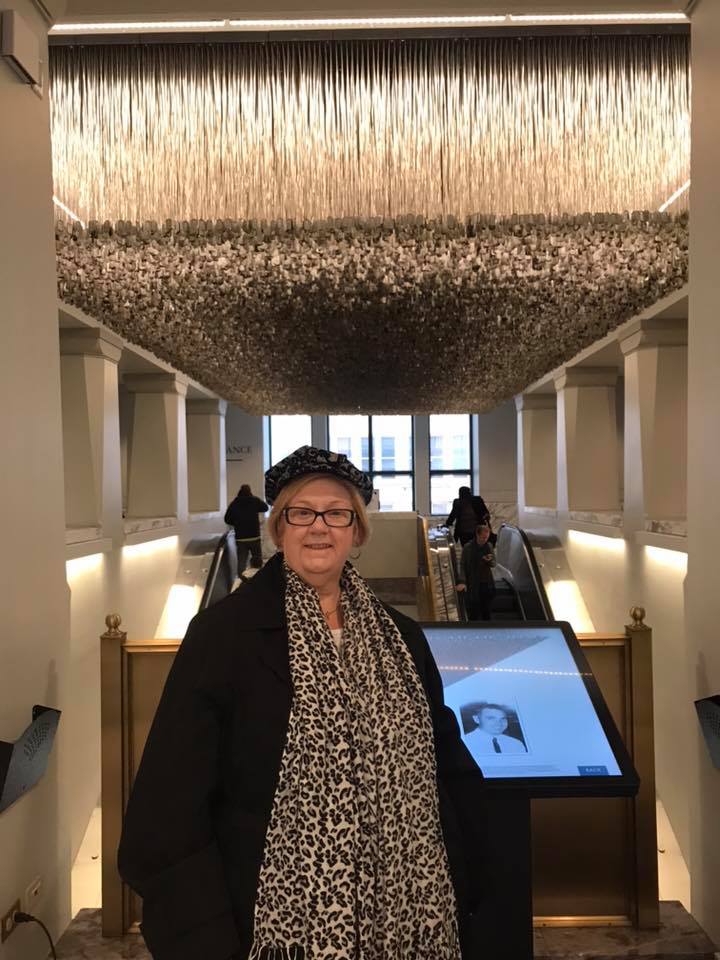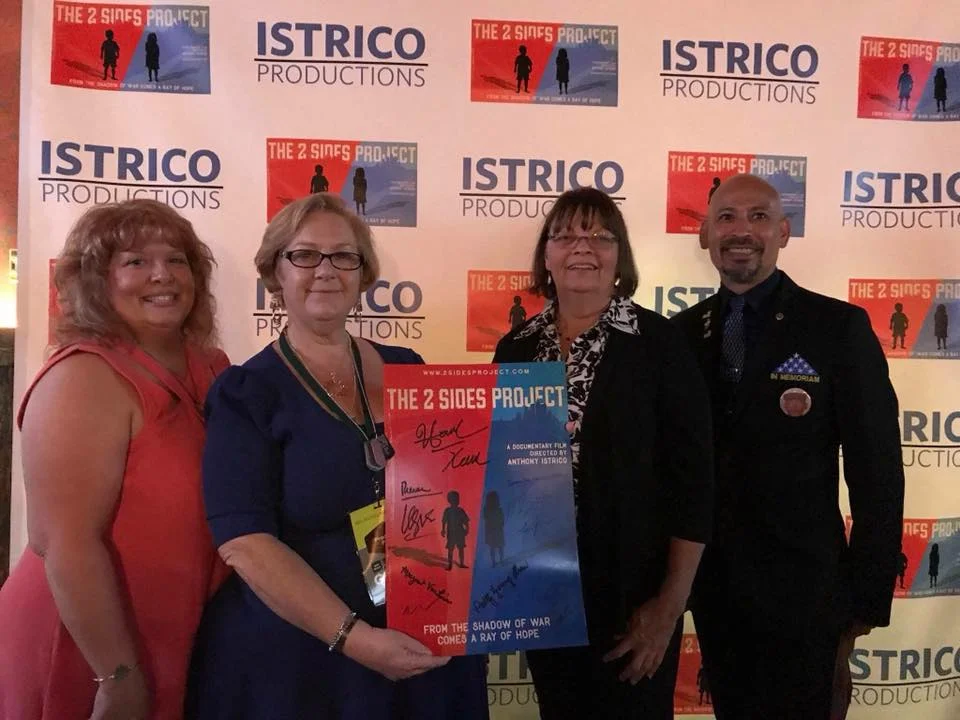The 2 Sides Project Profile:
Susan Mitchell-Mattera
Susan is the daughter of James C. Mitchell Jr., an Electricians Mate in the Navy and a linguist who learned several languages at the California Linguistics School before he left for Vietnam. He was on assignment with Special Forces Operations on January 8, 1970 when his helicopter was shot down over the Mekong Delta near An Giang. A registered nurse from California, Susan often finds herself caring for Vietnam veterans. But it’s only been in the last few years that she has pushed herself to ask about their experience, and to share her own, fostering connections that have propelled a deeper interest in helping others heal from the war.
Outside of her work, Susan serves others in many ways. She is a volunteer at her local church, working most weekends on projects that help the community’s neediest. She is also a caring sister to many other sons and daughters who lost fathers in the war, someone who makes a point to collect and share rubbings of their father’s names when she visits the Vietnam Memorial in Washington D.C. And Susan has been an active supporter of the 2 Sides Project from the start. She went on the 2015 trip, has attended film premieres in London and Florida, and regularly speaks to individuals and groups about her experiences. Susan’s passion and drive led to her recent appointment as a Senior Advisor to the 2 Sides Project. She will serve as an advisor to the trip’s participants, and continue to be an international Ambassador of Hope.
In this profile, Susan talks about what propels her to serve, the special moments she remembers from her first trip to Vietnam, and how her experience shows that sharing stories is one of the most powerful ways to connect with others.
Early family photo, with Susan on the right
First, happy early birthday. You share it with Veterans Day. Does that explain in part why you’re so active in veterans affairs and war-related service?
I think it’s part of my genetics. My grandparents came from a place of helping others. They taught us that in order to fulfill your purpose, you have to empty the cup. They passed that idea on to my mother and to us, so we’ve always been active in all kinds of community efforts.
I think over the last 10 years I’ve centered more on vets, connecting with them and their stories. Before that I would see vets and wouldn’t be comfortable even saying thank you. But I have forced myself out of my comfort zone and now it seems more of a mission to hear their stories, and to tell mine.
Susan in front of the dog tags exhibit, Chicago, 2018
Well it’s good you’ve moved out of your comfort zone because you have these magic moments in your life where amazing things seem to happen. We started calling them “Susan Moments.”
I just seem to be in the right place at the right time. A couple of weeks ago I went to Chicago on a stopover on my way to Washington DC, and had a whirlwind couple of days visiting the National Veterans Art Museum and the local Vietnam Veterans memorial. I saw the dog tags exhibit, which displays tags from all who served in the Vietnam War. I met Vietnam vets and heard their stories. And I met the museum director, who gave me a private tour. He also introduced me to the woman who created all of the dog tags using an old machine they stored in the office, which they restarted to make me a replica of my father’s tag. My family jokes that I’m living the life. I’m just connecting with people. That’s my purpose now.
You were also recently in Washington, DC for the Marine Corps Marathon, right?
Yes. Amy Bushatz is a reporter I met ten years ago when she profiled me during Father’s Day for The Washington Post. We’ve kept in touch, and she contacted me recently to say she wanted to carry a flag in my father’s name through her road races this year. She finished the season doing the Marine Corps Marathon, carrying the flag the entire way. She gave it to me after the race, and I’m bringing it with me to Vietnam.
Amy Bushatz, right, and Susan celebrate after the Marine Corps Marathon
Susan and Vũ Ngọc Xiêm in Ho Chi Minh City, 2015
What do you remember most from the first 2 Sides Project trip?
I’ve been looking back at all the pictures, all the moments. I will always remember one of the Vietnamese sons, Mr. Xiem, pinning a flower on my dress. It’s a clear plastic flower made by children who are living with defects caused by Agent Orange. He had been very angry in our meeting, and his hands were shaking as he put it on me, but I saw how his anger had softened as we all talked. His action symbolized there was some understanding, not necessarily forgiveness, but an understanding that we are all on the same side, the side for treating others with humanity and kindness. I still have that pin. It’s on my dresser. It’s as valuable to me as any piece of jewelry I’ve been given.
Why are you going back?
I have to. I think there are more connections to be made and more opportunities to help others close that hole in the soul that anyone who lost a father, on either side, knows about. That hole is now filled for me. I’m not saying everyone has to go to Vietnam to fill it, but I’ve seen people go who said they would never go, and come back changed. The question is why wouldn’t people want to grow and change? I can’t imagine being stuck in that timeframe when my father died. I know that the stories we brought back from the first trip helped others. Some can’t go or don’t want to go, but I still think they want to hear the stories.
Susan at the Washington, D.C.
2 Sides Project film premiere, 2017. Pictured are, left to right, Patty Young Loew, Susan, Jill Hubbs and Ron Reyes






